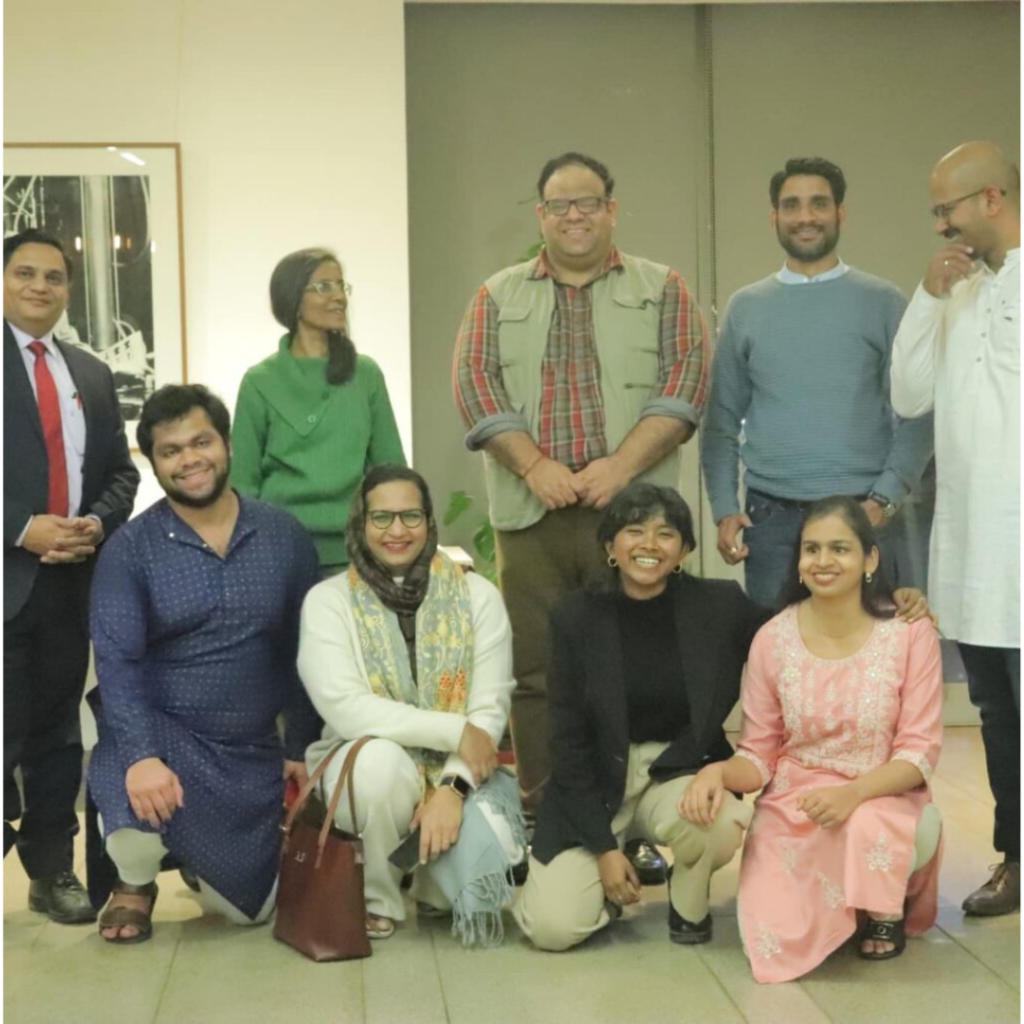
Funded by the Sabin Vaccine Institute, iHEAR VaccinEquity 2.0 (VE 2) is a research project building on the work done in VaccinEquity 1.0 (VE 1), unpacking the structural barriers experienced by the transgender and disability communities in accessing COVID-19 vaccines in India.
Behavioural and Social Drivers of Vaccination (BeSD) is a framework and a set of surveys and interview guides given by the WHO to facilitate immunisation programs to understand the drivers of vaccine uptake in a community.
VE 1 recognised a host of structural gaps for the transgender and disability community related to vaccine communication, information, access and delivery. VE 2 seeks to expand the BeSD framework and survey to understand the drivers and barriers of adult vaccination for transgender, intersex and disability communities. The goal is to develop a survey that captures the specific needs of these marginalised communities, so that immunisation programs can become more equitable.
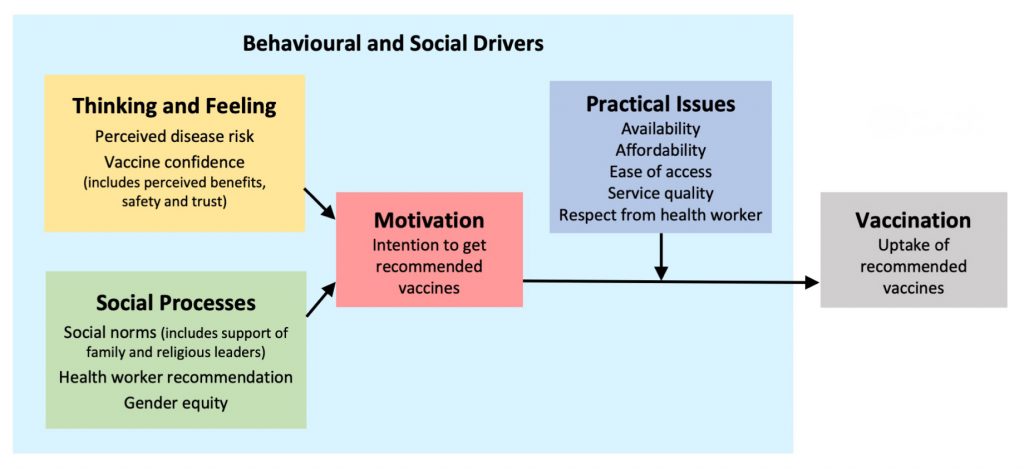
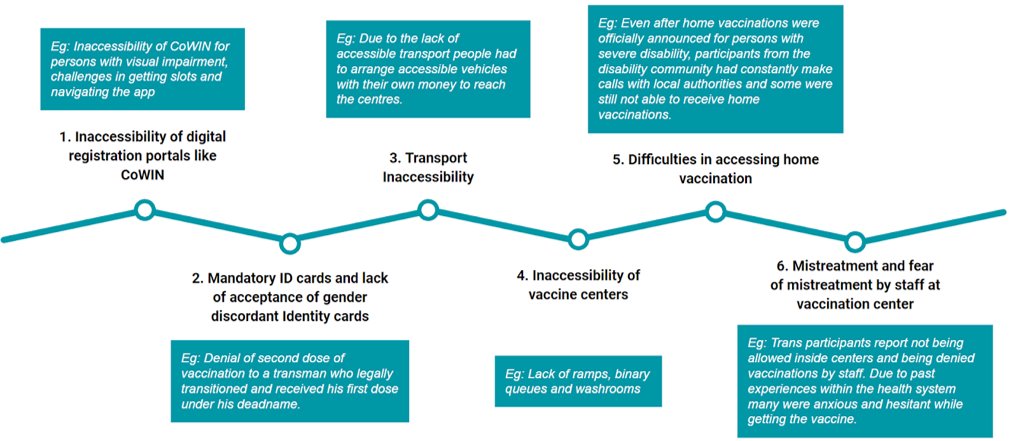
The one and half year project is sectioned into three phases:
In line with VE 1, VE 2 also takes a community-based participatory approach (aiming to address inequities in the research process through collaborations between communities, researchers and other stakeholders), with community members as part of the research team and through the guidance of a Community Leadership Group of 9 community representatives giving feedback at key stages of the research process.
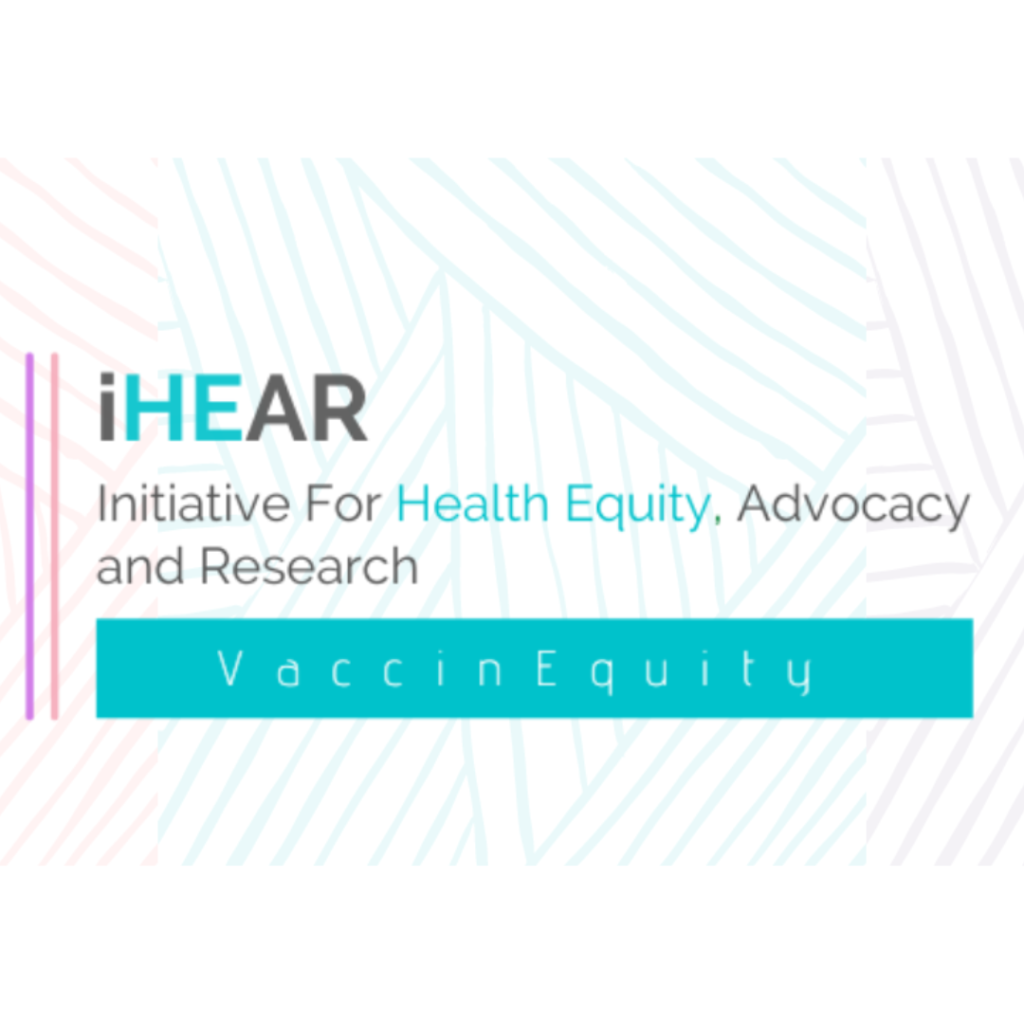
For further details please write to us at contactus@sangath.in
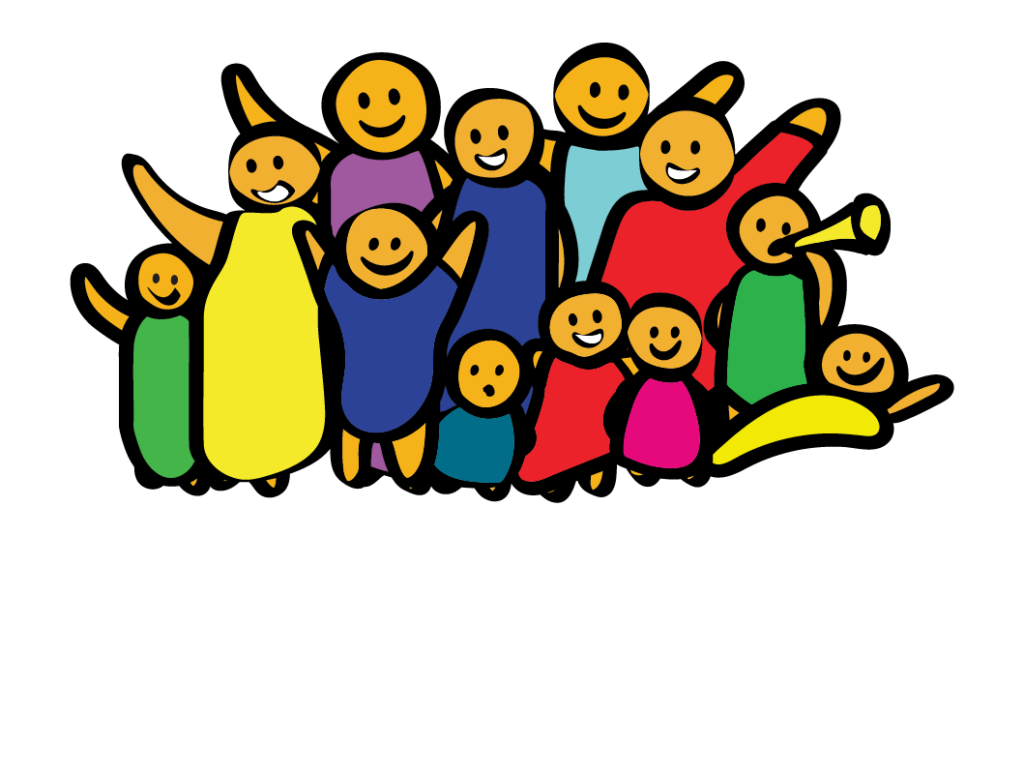
do_shortcode(‘
‘)